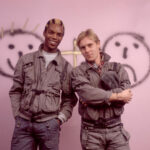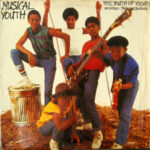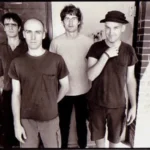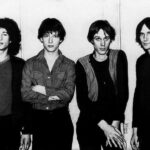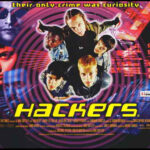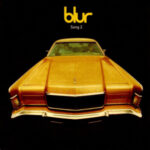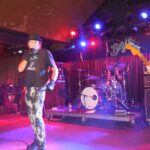Ska music, with its infectious rhythms and lively brass sections, has always been a genre that captivates audiences worldwide. Emerging from Jamaica in the late 1950s, ska underwent several transformations, with the second wave in the late 1970s and early 1980s taking the world by storm. This article delves into the vibrant era of second wave ska, highlighting the 7 best bands that left an indelible mark on the genre.
#1: The Specials
Formed in Coventry, England, in 1977, The Specials emerged as one of the most influential bands of the second wave ska movement. Comprising Terry Hall, Jerry Dammers, Neville Staple, Lynval Golding, Roddy Radiation, Horace Panter, and John Bradbury, The Specials blended ska with punk and new wave influences, creating a distinctive sound that resonated with audiences worldwide.
Their self-titled debut album, released in 1979, showcased their politically charged lyrics and infectious rhythms, earning them critical acclaim and a devoted following. Tracks like “Ghost Town” and “A Message to You, Rudy” addressed social and economic issues, capturing the angst and disillusionment of the era.
Throughout the 1980s, The Specials continued to push boundaries with albums like “More Specials” and “In the Studio,” cementing their status as ska pioneers. Despite lineup changes and internal tensions, their impact on the genre remained undeniable, influencing countless bands and artists across generations.
In 2008, The Specials reunited for a series of live performances, reigniting interest in their music and reaffirming their place in ska history. Today, their legacy lives on, with their timeless songs still resonating with audiences around the world.
#2: Madness
Hailing from Camden Town, London, Madness burst onto the scene in the late 1970s with their infectious blend of ska, pop, and new wave influences. Comprising Graham “Suggs” McPherson, Mike Barson, Lee Thompson, Chris Foreman, Mark Bedford, and Daniel Woodgate, Madness quickly became one of the most successful bands of the second wave ska movement.
Their debut album, “One Step Beyond,” released in 1979, showcased their playful lyrics and catchy melodies, earning them widespread acclaim and a string of hits. Tracks like “One Step Beyond” and “My Girl” became anthems for a generation, capturing the spirit of youthful rebellion and camaraderie.
Throughout the 1980s, Madness continued to dominate the charts with albums like “Absolutely” and “7,” solidifying their status as pop icons. Their unique blend of ska and pop sensibility appealed to audiences of all ages, earning them a devoted fanbase around the world.
Despite disbanding in the late 1980s, Madness reunited in the early 2000s, delighting fans with their energetic live performances and new material. Today, they remain active on the music scene, proving that their timeless songs and infectious energy are as relevant as ever.
#3: The Selecter
Fronted by the charismatic Pauline Black, The Selecter emerged as one of the leading bands of the 2 Tone movement, blending ska with punk and reggae influences. Formed in Coventry, England, in 1979, The Selecter quickly gained a reputation for their high-energy performances and socially conscious lyrics.
Their debut album, “Too Much Pressure,” released in 1980, showcased their distinctive sound and fearless approach to songwriting. Tracks like “On My Radio” and “Three Minute Hero” became instant classics, inspiring a new generation of ska enthusiasts.
Throughout the 1980s, The Selecter continued to push boundaries with albums like “Celebrate the Bullet” and “Hairspray,” addressing issues of race, politics, and social injustice. Despite lineup changes and industry challenges, their impact on the ska scene remained undeniable, earning them a devoted fanbase around the world.
In recent years, The Selecter has experienced a resurgence in popularity, with Pauline Black and original member Arthur “Gaps” Hendrickson delighting fans with their energetic live performances and new material. Their enduring legacy serves as a testament to the power of music to inspire change and unite people across cultures and generations.
#4: The Beat (The English Beat)
Originally known as The Beat in their native UK and The English Beat in the United States to avoid confusion with another band, this British outfit brought a unique blend of ska, punk, and reggae to the forefront of the second wave ska movement. Formed in Birmingham in 1978, The Beat consisted of Dave Wakeling, Ranking Roger, Andy Cox, Everett Morton, David Steele, and Saxa.
Their debut album, “I Just Can’t Stop It,” released in 1980, showcased their infectious energy and socially conscious lyrics. Tracks like “Mirror in the Bathroom” and “Hands Off… She’s Mine” became instant classics, earning them a loyal following on both sides of the Atlantic.
Throughout the 1980s, The Beat continued to evolve their sound with albums like “Wha’ppen?” and “Special Beat Service,” experimenting with new rhythms and instrumentation while staying true to their ska roots. Despite lineup changes and internal tensions, their impact on the genre remained undeniable, influencing countless bands and artists across generations.
In recent years, The Beat has experienced a resurgence in popularity, with Dave Wakeling leading a new lineup of the band on tour and in the studio. Their infectious grooves and socially conscious lyrics continue to resonate with audiences around the world, proving that their legacy as ska pioneers is as relevant as ever.
#5: Bad Manners
Led by the larger-than-life Buster Bloodvessel, Bad Manners brought a raucous energy to the ska scene with their exuberant performances and tongue-in-cheek lyrics. Formed in London in 1976, Bad Manners quickly gained a reputation for their wild stage antics and infectious ska beats.
Their debut album, “Ska ‘n’ B,” released in 1980, showcased their irreverent sense of humor and high-energy sound. Tracks like “Lip Up Fatty” and “Special Brew” became instant party anthems, earning them a dedicated following among fans of ska and punk alike.
Throughout the 1980s, Bad Manners continued to tour extensively and release new material, solidifying their status as cult favorites. Despite lineup changes and struggles with addiction, Buster Bloodvessel remained a larger-than-life figure in the ska community, inspiring countless bands and artists with his unapologetic approach to music and life.
In recent years, Bad Manners has continued to tour and perform, delighting fans with their energetic live shows and infectious ska beats. Their legacy as one of the most colorful and entertaining bands of the second wave ska movement lives on, ensuring that their music will continue to be celebrated for generations to come.
#6: The Bodysnatchers
As one of the few all-female ska bands of the era, The Bodysnatchers made waves with their infectious energy and empowering lyrics. Formed in London in 1979, The Bodysnatchers quickly gained attention for their dynamic stage presence and socially conscious songs.
Their debut single, “Let’s Do Rocksteady,” released in 1980, showcased their raw talent and unapologetic approach to ska music. Tracks like “Easy Life” and “Ruder Than You” addressed issues of sexism and inequality, earning them a devoted following among fans of the genre.
Throughout the early 1980s, The Bodysnatchers toured extensively and released a handful of singles before disbanding in 1981. Despite their short-lived career, their impact on the ska scene was profound, inspiring a new generation of female musicians to pick up instruments and join the ranks of ska bands around the world.
In recent years, The Bodysnatchers’ music has experienced a resurgence in popularity, with their songs being rediscovered by fans old and new. Their legacy as trailblazers in the male-dominated world of ska music serves as a reminder of the power of music to break down barriers and inspire change.
#7: The Toasters
From New York City, The Toasters played a pivotal role in popularizing ska in the United States during the second wave. Founded by British musician Rob “Bucket” Hingley in 1981, The Toasters quickly gained a reputation for their high-energy performances and DIY ethos.
Their debut album, “Skaboom!,” released in 1987, showcased their infectious blend of ska, punk, and reggae influences. Tracks like “Don’t Let the Bastards Grind You Down” and “2-Tone Army” became instant classics, earning them a devoted following in the burgeoning American ska scene.
Throughout the 1990s and beyond, The Toasters continued to tour relentlessly and release new material, solidifying their status as ska pioneers. Despite lineup changes and industry challenges, Rob “Bucket” Hingley remained at the helm, guiding the band through highs and lows with his unwavering commitment to ska music.
In recent years, The Toasters have continued to delight fans with their energetic live performances and infectious ska beats. Their enduring legacy as ambassadors of ska music in the United States serves as a testament to the genre’s enduring appeal and global influence.
This post has already been read 291 times!







